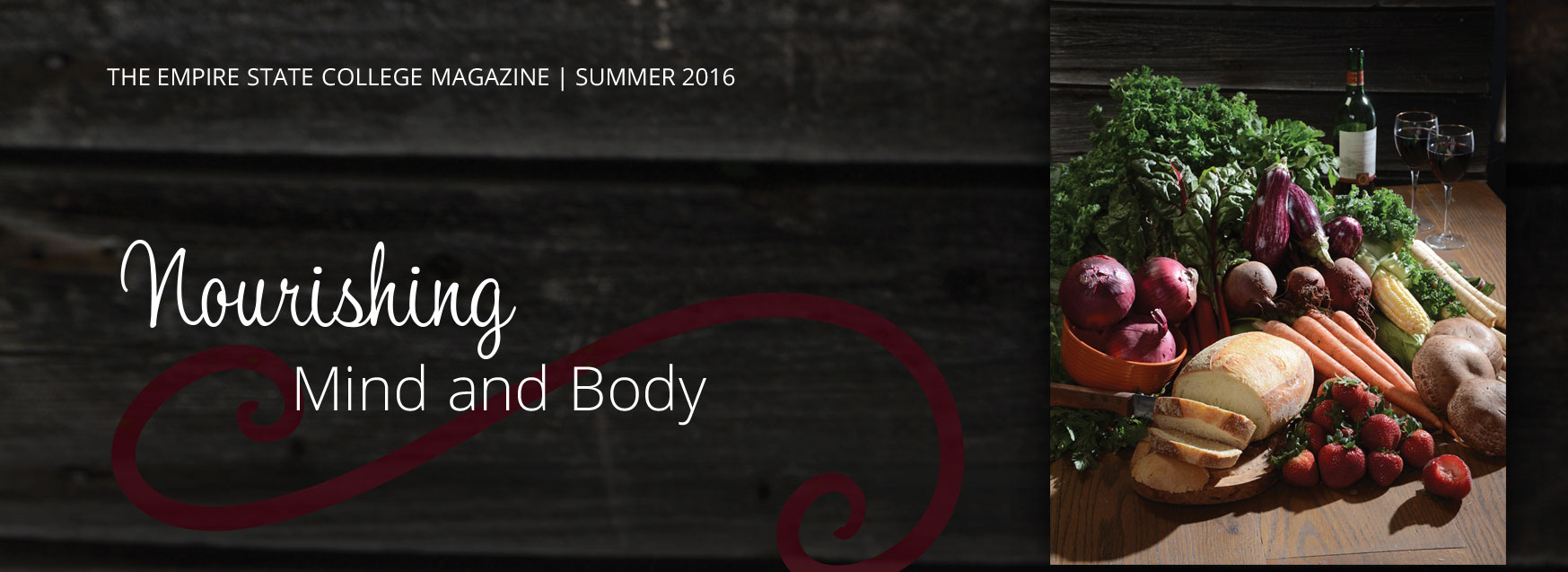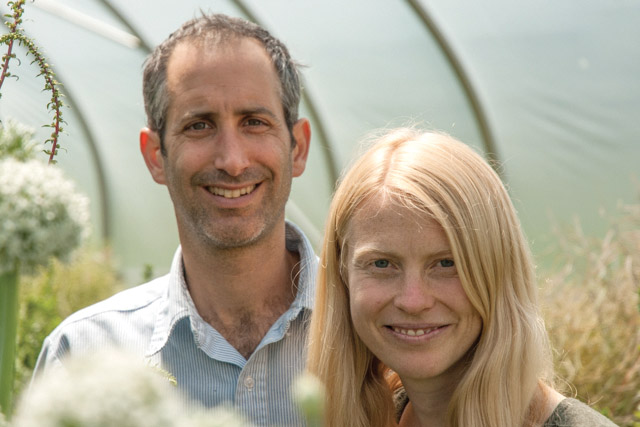
Saving the Food Chain One Seed at a Time
by Mary Caroline Powers

Petra Page-Mann is studying Ecological Agriculture at Empire State College’s Canandaigua location, southeast of Rochester in New York’s fertile Finger Lakes region. Like so many other Empire State College students, her professional life is the laboratory for her academic pursuits.
Together with her partner, Matthew Goldfarb, she founded Fruition Seeds in 2012. They have grown the endeavor to what is considered a “cutting-edge” seed company that produces certified organic, local seeds regionally adapted for the Northeast and open-pollinated. The selection of different seeds includes vegetables, herbs, flowers, grain and cover crop seed for the Finger Lakes bioregion.
The couple brought to the effort an effective blend of passion, social commitment, experience and good advice from friends, neighbors and experts.
Goldfarb had been committed to sustainable agriculture since the early 1990s, beginning with a career in farm-based education and sustainable food production and distribution systems. He has since worked on the design and management of diversified farming, consulted farms and farm-education organizations, conducted small farms research at Cornell University, taught high school biology and agriculture, completed academic work in Rural Sociology, and earned his MBA from Babson College with a focus on entrepreneurship and creativity.
Page-Mann is a lifelong gardener, seed saver and native of the small rural community of Naples, N.Y., where their Fruition Seeds’ operation thrives on two leased acres located on Hickory Bottom Road. They describe the land as “predominantly silt loams with more than 5 percent organic matter and a pH between 6.2 and 6.9.” Another leased acre nearby in Branchport provides more opportunity for growing, as does a third planting area just beginning on muckland on the edge of Naples, which is isolated from other produce operations, a big plus when you’re trying to produce pure and viable strains of organic seed.
“I first became enamored with seed as a child in my father’s garden, witnessing the miracle of seed, sun and soil that sustained us all through the seasons,”
Page-Mann says.
She spent more than a decade working for organic seed growers as well as regional and international seed companies. From that experience, she says, she recognized the extreme peril threatening our current food system and came to believe that cultivating a diverse and resilient genetic foundation for the world’s food system can address its most systemic problems.
Together, she and Goldfarb set out to revitalize the regional seed supply in the Northeastern United States.
“Fruition Seeds offers resilience to our food system at its most fundamental level, growing over 300 varieties of certified organic seeds that are regionally adapted to thrive in the short seasons of the Northeast,” says Page-Mann. “We collaborate with farmers, chefs, plant breeders, schools, food banks and the wider community to bring greater resilience to all.”
Farming is hard work. Seed farming, which in addition to growing involves collecting seeds and seed heads, then careful drying, sorting and packaging them, is particularly challenging. But a perusal of the Fruition Seeds website would suggest that Goldfarb and Page-Mann, while working hard,
are having fun saving the earth’s food supply.
“New This Season,” the Fruition Seed website boldly declares, “Organic Mad Dog (official) Skullcap!” What follows is just about all the information a grower would need to sow Mad Dog Skullcap seeds, including this tidbit: “called Mad Dog for its use as a traditional folk remedy for rabies.”
The Fruition Seeds website is chockablock with planting strategies, climate information, including what to plant when, and information on plant growth and behavior, such as, “Mad Dog Skullcap spreads best by stolons underground so keep the bed well weeded.”
They’ve got seeds for 20 different varieties of tomatoes, some of which are rated, like the five-star organic Gelbe von Thun yellow heirloom that’s touted as possessing “outstanding flavor” and being “perfect in salads and on kabobs.”
There are seeds for herbs that are medicinal and herbs that are edible, seeds for edible flowers, as well as those meant for vases, and seeds for plants best grown in containers. And the photos of what their seeds grow makes experienced and amateur gardeners alike want to order every single one of them, suddenly infected with Fruition fever. But beyond the joy, Page-Mann wants to remind us of the seriousness of her pursuit.
“I’d like to offer you this thought: seeds are the foundation of food. There is no food without seeds. And not just carrots. There is no steak, no tea, no medicine,” says Page-Mann of the strongly held belief that underlies her work and studies. “Our lives are deeply intertwined with seeds, whether we sow a seed in our lives or not.”
Photography provided by Fruition Seeds